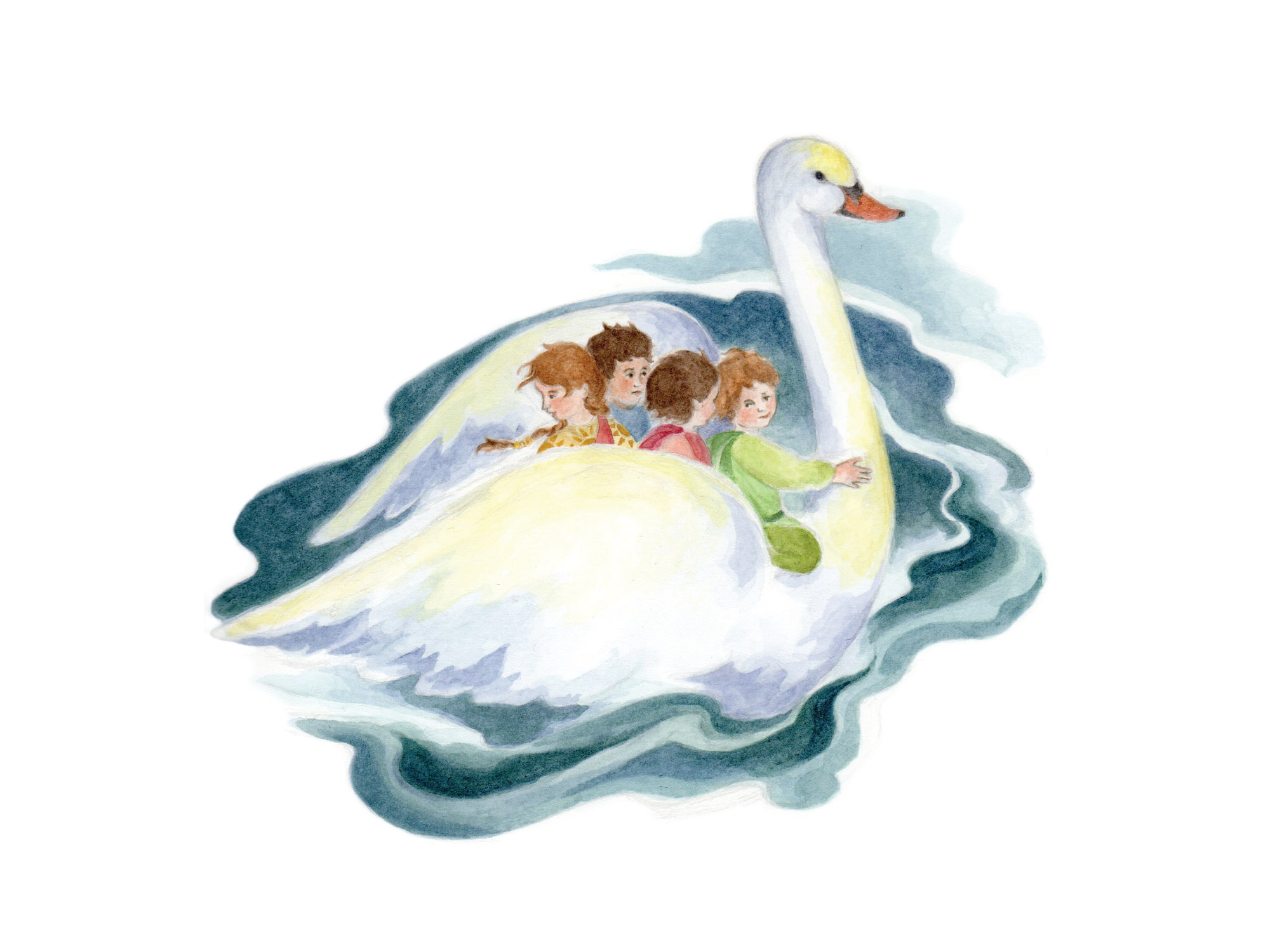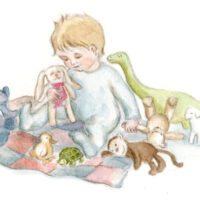Postponed several times due to the pandemic, the time has now come – from June 15 to 18, 2022, the international and interdisciplinary Toddler Congress will take place at the Goetheanum. To the theme ‹The Dignity of a Child›, the statement, «I feel good in your eyes» is added. This makes it clear that it is no longer just about children, but the adults and institutions that are responsible for the conditions for healthy childhood growth. Claudia Grah-Wittich interviewed by Wolfgang Held.
You added a motto by the painter Henri Matisse to the title: «One must not forget to see the world through the eyes of a child.» What does that mean?
Claudia Grah-Wittich: Adults, pay attention! Recognize the needs of a child and support, encourage, and accompany them throughout their life. It also means being able to read what the child wants without interpreting it from one’s own point of view – that narrows the focus of what the child can express. An example: a year and a half old child scratches an empty pot with a spoon. The educator asks: «What are you cooking? Can I try it?» At first, the child looks surprised and then hands over the spoon for them to taste. This is how conditioning begins! On the next occasion, the child immediately offers the spoon to the adult’s mouth. Before we interrupt a child in their game, it is important to ask yourself: did the child seek contact? Maybe they are just interested in making a sound with the spoon or trying a movement pattern with their arm.
The example has it all because the question «What are you cooking?» actually feels especially child-friendly.
And above all else, smart! That’s exactly the problem! We also feel that this allows us to control the situation. Yes, I know what the child is playing: he is cooking. I set the framework. Maybe I just have a guilty conscience because I was distracted for a long time with my own matters. It’s maybe not important the first time, but by the second or third time, it becomes a habit. Then we bring the child their dolls. «You can cook your dolls something to eat!» In this way, we introduce the child to something that may not be needed at all. What is important for a child is that they experience themselves as self-directed in the world. If we adults observe each other well in such comments, then we realize that we really want to make an offering to the child to be in a relationship.
«Education is a relationship» and a relationship is positive, isn’t it?
Of course! But where are the suitable places for this relationship management? It is essential for the child and for the adults. Because we can only develop in places where we feel safe and secure, where we feel trust, warmth, and love. For the child, this is the prerequisite for their exploration, their movement development, their play, and their inquiring mind in the exploration of the world. For example, if the child is eating or getting dressed, then they need my support. They are on the way to independence and need adults to accompany them and observe their development: «Can you do it alone today? Yesterday you still had a lot of trouble getting into your shoes. Now you can do it on your own!»
Experiencing the feeling of empowerment.
This is what matters to the child: through the reflection and resonance of adults, they form their own shell in which they feel secure. This creates joy for everyone involved. The child develops the desire to grow, learn, and expand their own field of development.
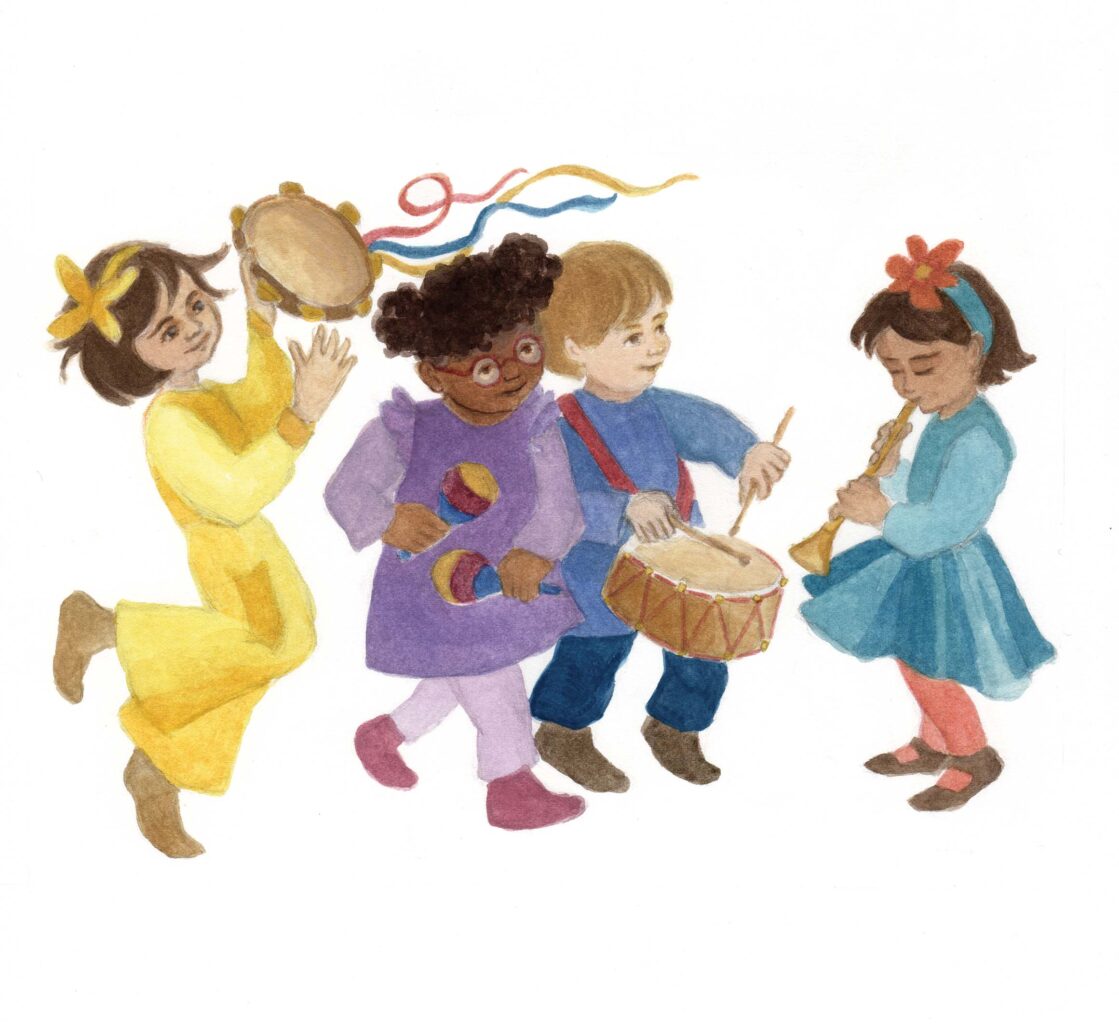
Then they’re interested in conquering the world?
Yes, extraordinarily! This is exploration, the joy of discovery, and the prerequisite for the establishment of lifelong learning. We know only too well from our own childhood experience that one prefers to play and discover oneself undisturbed. In play and in movement, it makes sense to let the child be by themselves, unless they are looking for contact.
What role does the dwindling willingness to take risks of us adults and parental anxiety play?
This is a problem of proportion. Often, under certain circumstances, we transfer our bad experiences and fears onto our children. If a parent sees a child trying to balance and immediately offers them a hand because they could fall, then it may be because the parent is insecure in their own balance. That’s why in our adult education, we encourage parents to try balancing for themselves. If we ourselves sway on the wood, then we realize how much concentration it takes. I have to focus very strongly on my feet and on my sense of touch. I have to stay completely with myself. We realize how grateful we are when no one interferes. Every «Watch out!» interrupts our concentration.
That is, not only looking with the eyes of a child but also walking with their feet?
For example, a wonderful exercise is to let educators or parents run a route with binoculars flipped in front of their eyes. If we look through an inverted pair of binoculars, we have a greater distance to things, a perspective that is possibly very similar to that of a child. When we practice this, we quickly realize how little we want to be disturbed.
Let’s imagine scenes on the playground: «Watch out! You’re getting dirty! Look, there’s a child standing there! And then – Let’s go! Or: You did a great job!» We clap. Once we realize how often we tear the children out of their concentration, then a lot has already been gained. Perhaps an adult’s need is behind this: I want to signal to you that I am with you. «I’ll take care of you.» In many cases, it is also due to the fact that we adults are working a lot nowadays. When we finally get together with our children again, we want closeness. It’s powerful to create closeness through just perception, and that’s usually underestimated! But unconscious interactions prevent the child from gaining self-awareness. This hinders their later independence.
Do we often stand in the way of our children?
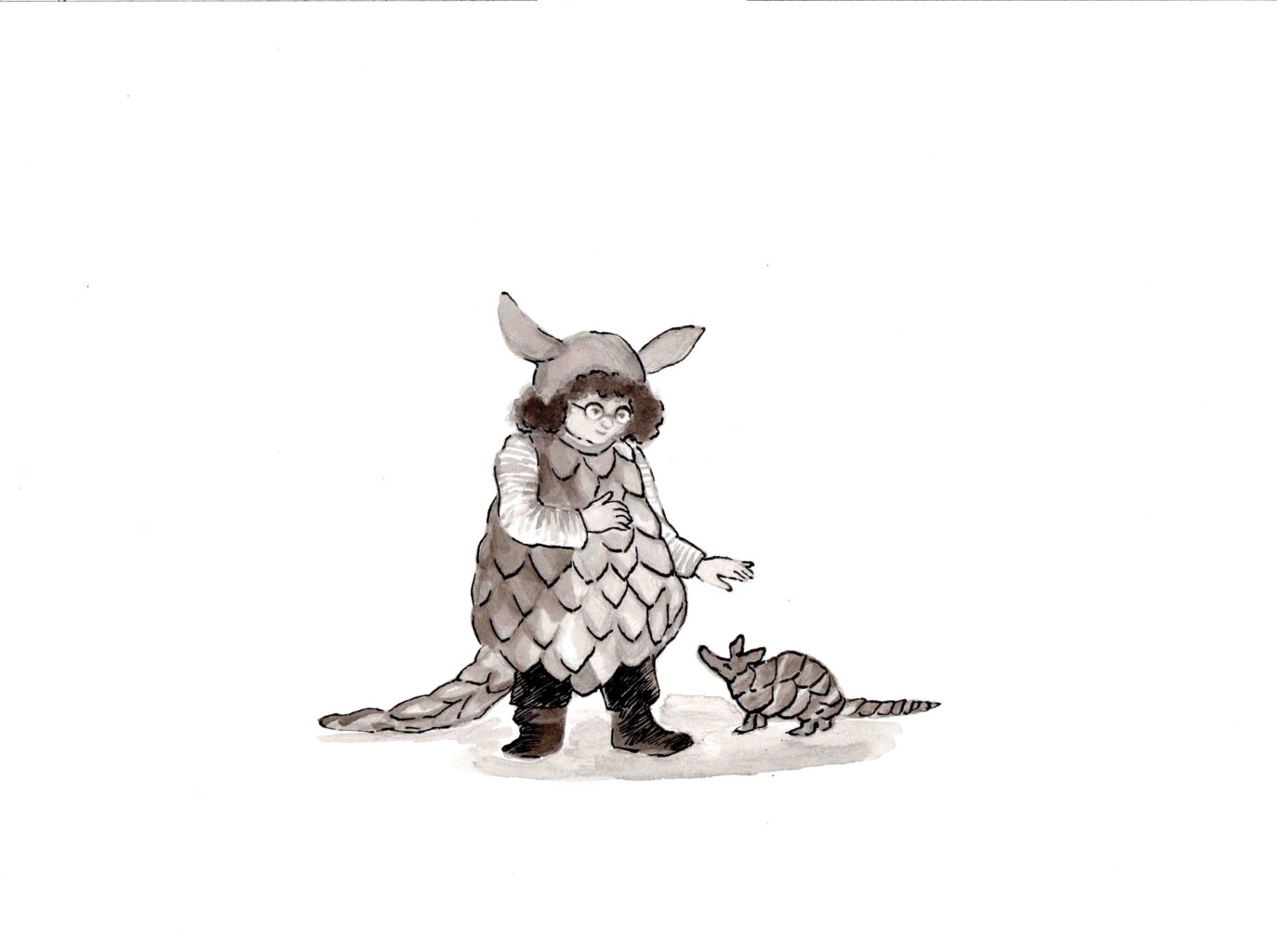
If I want the children to do their homework alone later, then they have to practice concentration and the ability to be with themselves. It starts much earlier than we think. Children today can hardly lie alone in bed. They are either rocked in an arm or carried in a sling. It is almost a rarity when a mother tells us that her child can just lie in the room for an hour and play by themselves. The other day I met the mother of an infant. Her child was three weeks old and slowly woke up and squeaked. That’s when I asked if I should take him out of bed. «Does he already have his eyes open?» his mother asked me. «No!» «Then wait a little while.» In fact, it took the child quite a while to get into his own body properly. Then he was moaning a bit. Suddenly he became quiet, opened his eyes, and looked at me. This mother intuitively felt and understood this: she gave her child the time it takes to wake up properly and to feel at home in his own body.
As parents, we parents do not like to be corrected. How do you open that door?
Through my professional experience, I have stopped demanding anything. My experience is that there is nothing in families today that does not matter. I learned so much from parents and families. We can hardly imagine how diverse family situations are. This means that there are only individual questions and solutions. The time for recipes is over.
How can you still be successful?
My insider tip for fathers is to ask themselves to remember the most beautiful moments during their own childhood. Where did the father feel happiest? They then talk about how, for example, on Sundays when their own father mowed the lawn or built something and they played by themselves. So they have the experience that someone else managed it meaningfully, and they could do it themselves. With such descriptions, I can then establish that exploration, experiencing the world revealing its secrets, is a deeply silent, lonely process. It is no different later, with our core personality. The I is always alone. That is its signature. I can only discover the world on my own. It is a great joy to be able to share this – but that’s less reliable than self-discovery. This is the core of freedom! It is wonderful for children to be by themselves in the presence of adults. We adults only have the task of observing, then, when the child arrives, for example, with a caterpillar in their hand and to rejoice and mirror: «You have found a caterpillar! Look what a furry coat it has.» Even the most stubborn fathers confirm: true, that was the most beautiful thing, when my father washed his car on Saturday and I was allowed to clean the lamps with my little bucket. It’s not primarily about togetherness. The adult forms the shell for the child’s expansion into the world, for the expansion of their experience.
Today, professional life almost always also takes place at home.
Yes, that’s why I ask: do you have a hobby that you really like to do? There is always something. Try to perform a satisfying activity in the presence of your child. This radiates into the child’s own play. That quality is transferred! In my view, one’s parents are always the ‹right people›. They have a certain destiny with their child. We can learn from the child, just as the child learns from us. They have a connection which we need to work with.
And what about the institutions and professional care?

I see it as a very important task today that we go into institutions and offer quality assurance for people’s perceptions and insights. Educators can create an environment for children in which the needs of the children are observed. To this end, we must say a painful goodbye to demands and agendas.
I see in the institutions that there are often well-intentioned ideas about how to do this, but often they prevent us from perceiving the real needs of the child. A few days ago, I had a seminar and asked what was beneficial and what was a hindrance for children who are rather restless or have a strong urge to move. That was exciting! The educators all reported that it was best to form smaller groups, work homogeneously in age, and go out into nature. «And why aren’t you doing that?» was my question? «Well, because our program, our concept, doesn’t allow it that away.» «Yes, but who is responsible now, if not you? If you are observing what is good for the children, if you would have less aggression and more peace and creative play through smaller groups or going out into the garden, if you know what is conducive to their development, then you should change it tomorrow!» At this point, I think – and this has to do with the Toddler Congress – that we simply have to draw attention to all aspects of the life around a small child. Nature is the greatest treasure we have, and adults, as the child’s first environment, are responsible for shaping this environment.
The smaller the child, the more it is at the mercy of us adults – right?
Yes, because they can’t say no yet. The moment a child can say no, they have already drawn the first line and learned to distance themselves because they can say yes to themselves. Infants are not as in need of protection and help as we think. They need to be taken care of, of course. But above all, they are vulnerable, in the sense that we let them be, that we do not constantly do something with them, drag them around, put rattles in their hands, or the like. Where we simply observe the child, we are on their side! Maybe they are quite satisfied when they are in the bed or in the stroller, or under a pear tree. And when they are still very small, when they wake up, it may be enough for them to just see the shade of the trees or the movement of the leaves.
We think they are bored. Is boredom more of an intellectual problem for adults?
It is an adult imagination problem. We believe that we are obliged to make offers. This also applies to the professional educators in institutions because then they think they have the situation under control. When I sing a song, do a round dance, paint or tinker with the children, I think I can control the situation.
That’s why we organized the Toddler Congress as an interdisciplinary event. I think the most important thing today is that it’s not just about the educators in the institution. It is also about the pediatrician, the midwife, the therapists and the gynecologist! It’s about everyone who is around the child, from the beginning. If we value the autonomy of a child and experience, understand, and act on it as the highest good of human beings, then not only does it serve the developing person and their individuality, it serves the whole Earth! How are we going to solve these emergencies on Earth if not through innovative, creative, autonomous people! If we understand this, what prevents us from pursuing this principle from the outset? For the gynecologist who receives the child with mindfulness, initiates the contact between a child and their mother, the midwife who cares for the beginning of life, the pediatrician who not only sees the deficits but is a development worker like Remo Largo, who pointed out: every child is unique – that’s something to appreciate. Everything we condition them with is actually bending their uniqueness.
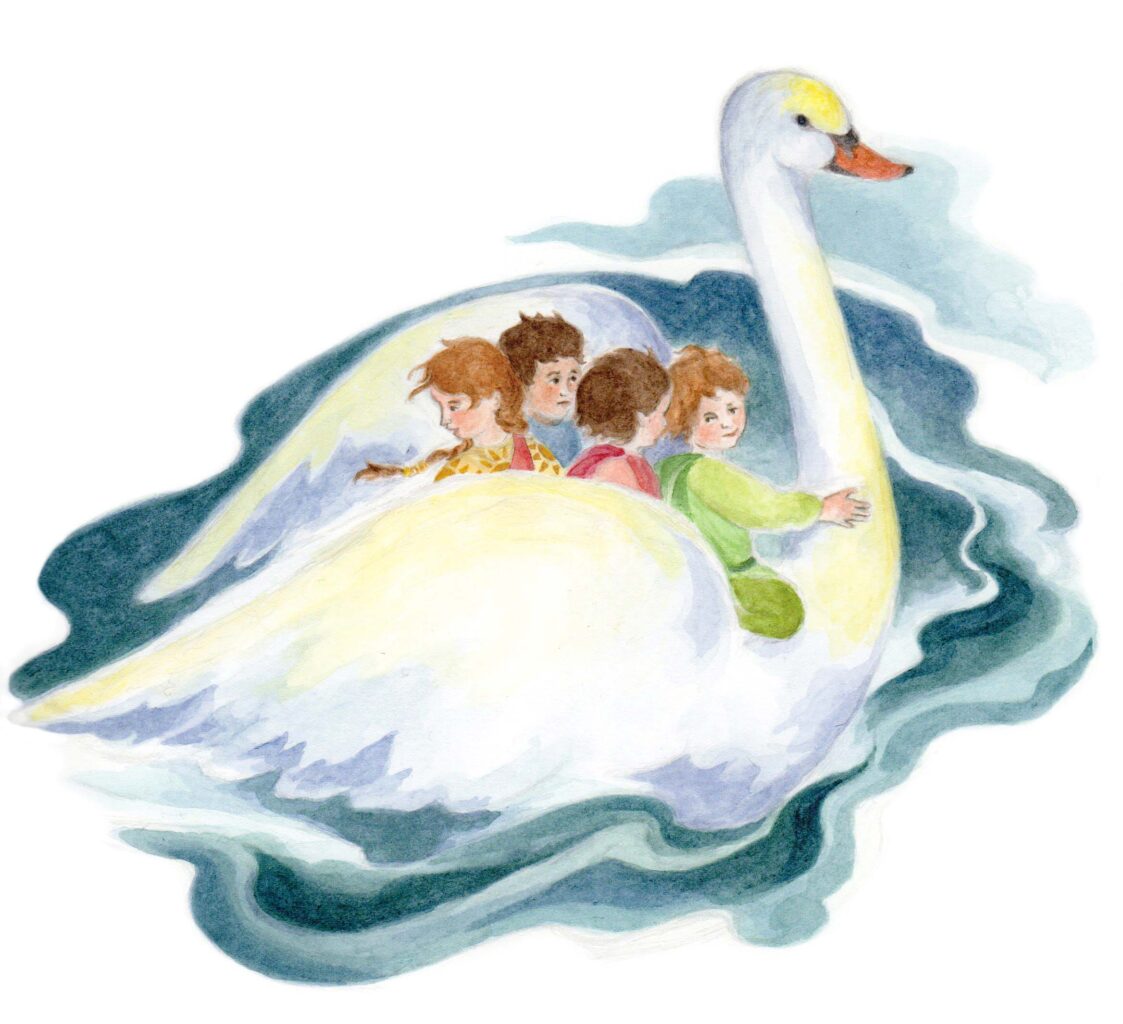
For my book on Waldorf education, I was hosted by Till von Grotthuss’ first grade class in Munich. At the beginning of the lesson, he told his students what was going to be dealt with that day. I thought that this would have been unthinkable 20 years ago, because teachers are supposed to be in control – the children follow us. Now, suddenly there is equal footing. When does this equal footing start?
The moment I decide to have children. With conception, I invite my children to go their own way. You can’t force a child to be born, despite all the technical aids. There are still many women who do not become pregnant. That means that the will to come to this Earth is the very own will of human beings. You can’t control pregnancy. You can eat well, and you can optimize everything, but in the end, it is always the child who decides how the pregnancy proceeds and how the circumstances of the birth are configured. These are always actually indications of the higher, autonomous motive already present.
Is pregnancy already the first lesson for us in this direction?
Let’s not forget what network of controls we are putting on pregnancy today: one knows the gender and shares the ultrasound image via Whatsapp. This large amount of knowledge displaces feeling. At the same time, how nice is it that, in the current generation, parents contact the child so early in pregnancy? It often leads to the parents already starting to sing or talk to the child. There is a growing awareness and greater familiarity among many parents.
So the commitment is there and is to be welcomed. But doe it overshoot the mark?
Absolutely! I believe that children and parents today simply need orientation, and this orientation must be very simple and essential. In fact, I believe that all adults need orientation and an understanding that each child is a world of their own. To be able to feel into this world more and more, to be able to experience childhood again, can only happen if we really observe our children. Often we ourselves have not been brought up in such a way that we open the world up through perception – rather we have learned to find the right words for different perceptions and assign them appropriately. This often means that I have to read or research on the Internet to know what the child up to and what is good for them, rather than simply observing and trying to understand. We all have to rethink this, which is one of the reasons why we are doing this congress. It is about an inner attitude toward a developing life.
This reminds me of the oft-quoted sentence: «It takes a village to raise a child.»
If we are lucky, friendships between families can replace the village, where they get together and the children feel just as at home in another family as they do in their own.
Institutions today should be as good as the village of yesterday: that the children experience life and not ideas. This is my message to all adults: first, question your own judgment when you see a child. And further: can you see their needs, can you see the world through the eyes of the child?
Every moment I spend with a child, a new world opens up to me that has never been there before. At that moment, the child and I are unique. There may be a creation out of nothing. Then life happens, and everything created disappears. – Translation: Monika Werner

